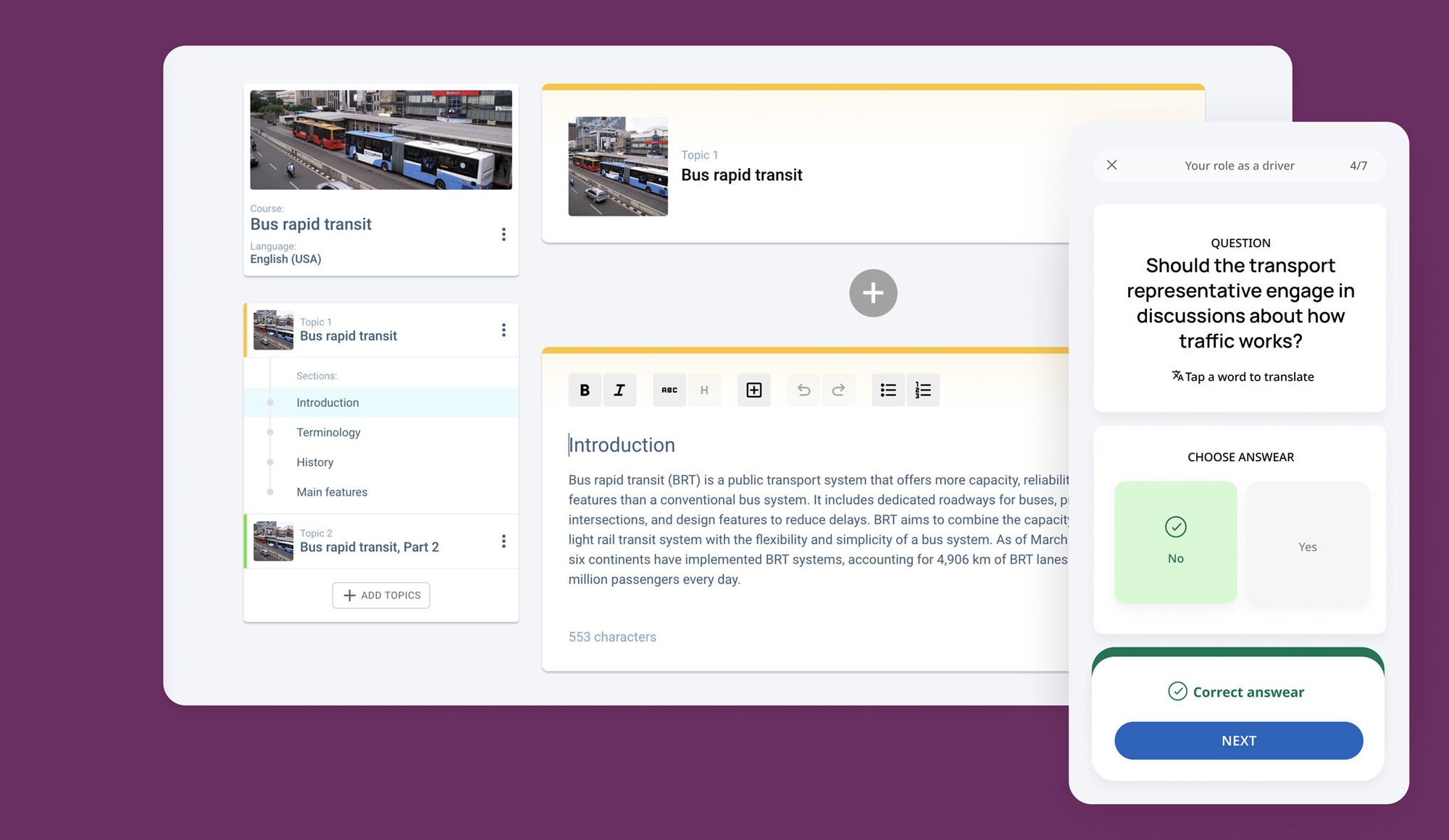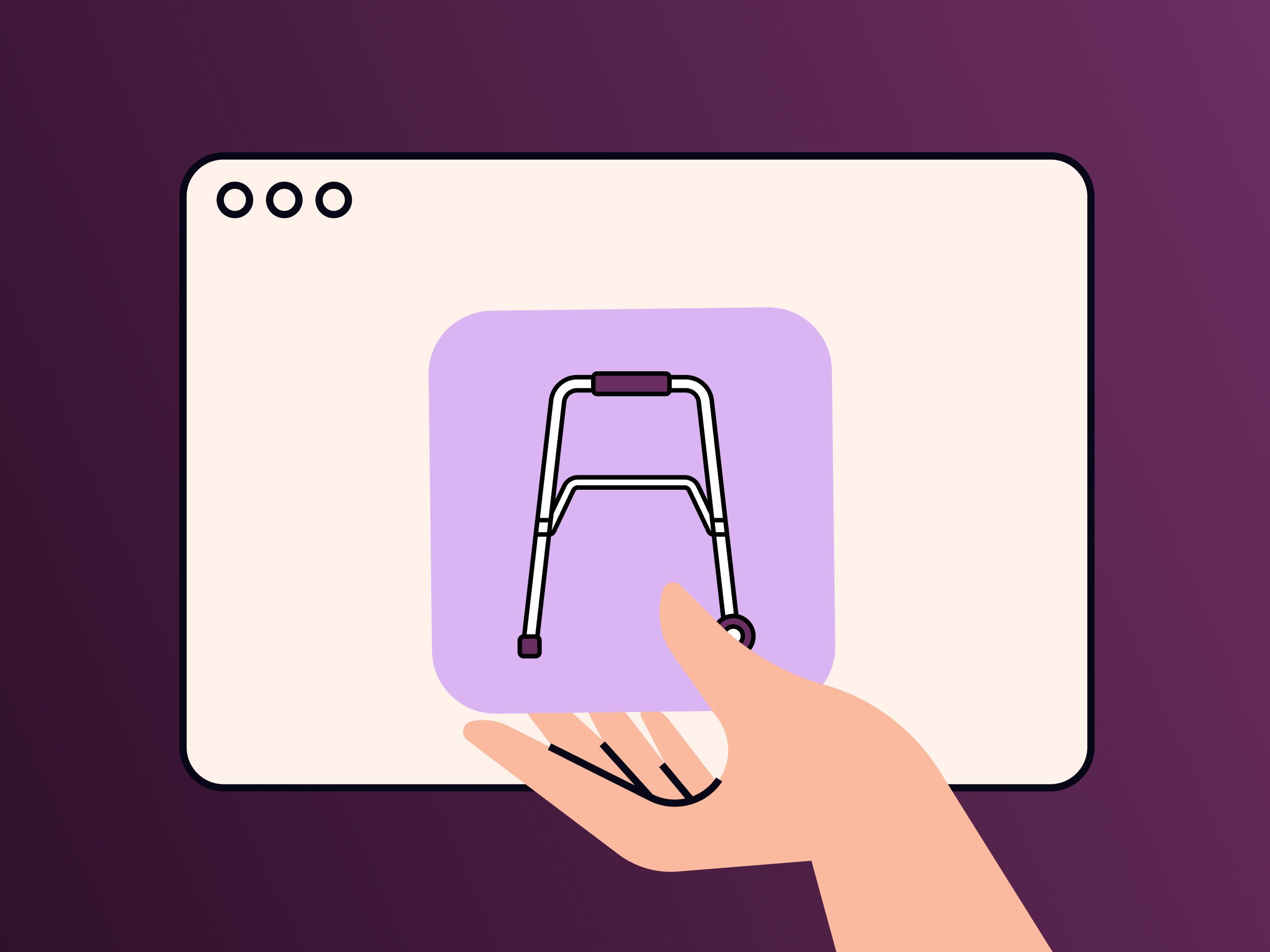In the rapidly evolving healthcare industry, care staff training is more crucial than ever. In 2024, it is essential to equip care staff with the necessary knowledge and skills to deliver high-quality care to patients. This comprehensive guide to direct care staff training aims to explore the key components and innovative methods of care staff training while addressing the challenges and future trends in healthcare training.
What should you know about healthcare stuff training?
As the demand for healthcare services continues to rise, so does the need for well-trained care staff. Effective training ensures that care staff have the skills and knowledge to provide optimal patient care and support. This guide will delve into various aspects of care staff training and highlight the core areas that must be addressed.
Regarding care staff training, it is essential to consider their diverse range of responsibilities. Care staff are responsible for providing patients with physical, emotional, and social support, often in challenging and complex situations. Therefore, their training must encompass an overview of various topics to ensure they are prepared for any situation.
One crucial aspect of direct care staff training is understanding the principles of person-centred care. This approach emphasises the importance of tailoring care to meet each individual's unique needs and preferences. By incorporating person-centred care principles into their training, care staff can develop the skills to establish meaningful patient relationships, promote independence, and respect their dignity.
In addition to person-centred care, staff training should cover infection control, medication management, fall prevention and emergency response. These areas are vital to ensure patients' and care staff's safety and well-being. By providing comprehensive training in these areas, care staff can confidently handle situations involving infection prevention, medication administration, and emergency protocols.
Understanding the role of care staff in 2024
In 2024, care staff play a vital role in the healthcare system. They are responsible for assisting patients with daily activities, monitoring their health, and providing emotional support. Understanding the evolving role of care staff is crucial to developing training programs that meet the changing needs of patients, caregivers, and the healthcare industry.
As the healthcare landscape evolves, care staff have become increasingly important in ensuring patients' well-being. In addition to their traditional responsibilities, care staff now also play a key role in coordinating care between healthcare providers. They act as liaisons between doctors, nurses, and other medical professionals, ensuring that all care team members are on the same page and working towards the best possible outcome for the patient.
Furthermore, care staff in 2024 are responsible for physical care and providing emotional support and guidance to patients. They understand the importance of creating a compassionate and empathetic environment, where patients feel safe and supported. Care staff are trained to listen actively to patients, offering a comforting presence and a shoulder to lean on during difficult times.
Assessing training needs for care staff
Before designing a training program, it is important to assess the specific needs of care staff. This can be done through surveys, interviews, and feedback from both care staff and patients. By understanding the areas that require improvement, tailored training programs can be developed to address these needs effectively.
Surveys play a crucial role in assessing the training needs of care staff. By distributing questionnaires to the staff, organisations can gather valuable insights into their knowledge, skills, and areas where they need further training. These surveys can cover various topics, including communication skills, patient care techniques, medication management, and infection control.
Interviews are another effective method for assessing training needs. Organisations can delve deeper into their experiences and challenges by conducting one-on-one or group interviews with care staff. This allows for a more personalised approach to training, as it helps identify specific areas where staff members may require additional support.
Feedback from both care staff and patients is invaluable in assessing training needs. Care staff can provide insights into their workplace, the challenges they face on a daily basis, the areas where they feel less confident, and the skills they believe would enhance their performance. On the other hand, patients can offer a unique perspective on the quality of care they receive and provide feedback on areas where they believe staff could benefit from further training.
Once the training needs of direct care staff have been assessed, organisations can develop tailored training programs to address these specific areas. These programs can include a combination of classroom-based learning, hands-on practical training, and workshops. By customising the training to meet the identified needs, organisations can ensure that care staff receive the most relevant and impactful training possible.
7 key components of effective care staff training
Effective care staff training involves several key components that enhance their skills and knowledge. These components include:
1. Clinical skills and knowledge
Clinical skills and knowledge form the foundation of effective care staff training. Care staff must have a deep understanding of medical procedures, terminology, and best practices. This includes knowledge of various diseases, conditions, and treatment options. By continuously updating their clinical skills and knowledge, care staff can provide patients with the highest quality of care.
2. Soft skills development
In addition to clinical skills, care staff must develop strong soft skills. These skills include effective communication, empathy, active listening, and problem-solving. Soft skills are essential for building rapport with patients, understanding their needs, and providing emotional support. Through training programs, care staff can enhance their soft skills, improving patient satisfaction and overall care experience.
3. Technology integration in care
The healthcare industry is rapidly evolving, and technology is vital in providing efficient and effective care. Care staff training should include education on the latest technological advancements and how to integrate them into daily practice. This may include training on electronic health records, telemedicine, remote monitoring devices, and other digital tools that enhance the patient experience of care and streamline workflows.
4. Regulatory compliance and ethics
Compliance with regulatory standards and ethical guidelines is crucial in healthcare settings. Care staff training should focus on educating employees about the laws, regulations, and policies that govern their practice. This includes patient privacy and confidentiality, informed consent, documentation requirements, and professional boundaries. By ensuring regulatory compliance and ethical conduct, care staff can maintain patient trust and uphold the integrity of the healthcare system.
5. Emergency response and crisis management
Emergencies and crises can occur in healthcare settings, and care staff must be prepared to handle them effectively. Training programs should cover emergency response protocols, including first aid training, CPR, and evacuation procedures. Additionally, care staff should receive training on crisis management, including de-escalation techniques and psychological support for patients and their families during challenging situations.
6. Mental health and well-being
Addressing patients' and care staff's mental health and well-being is essential for holistic care. Training should include education on recognising and addressing mental health issues, such as depression, anxiety, and stress. Care staff should also receive training on self-care strategies to prevent burnout and promote their own well-being. By prioritising mental health, care staff can create a supportive environment for patients and themselves.
7. Cultural competency and inclusivity
Healthcare is diverse, and care staff must be culturally competent and inclusive. Training programs should focus on understanding different cultures, beliefs, and practices. This includes education on providing culturally sensitive care, addressing language barriers, and promoting inclusivity for patients from all backgrounds. By embracing diversity, care staff can ensure that every patient receives personalised and respectful care.
Addressing these components ensures that care staff can provide comprehensive patient care while promoting their well-being.
Innovative methods for care worker training in 2024
The year 2024 brings several innovative training methods and tools that enhance the learning experience for care staff. Simulation-based training, virtual reality, and e-learning platforms are engaging methods that allow care staff to practice their skills in a safe and controlled environment. These approaches can significantly improve knowledge retention and enhance care workers' overall training effectiveness.
Trend 1. Simulation-based training
Simulation-based training is a cutting-edge method replicating real-life scenarios and allows care staff to practice their skills in a controlled environment. This type of training often involves using mannequins or computer programs that simulate patient interactions. By engaging in simulated scenarios, care staff can develop their critical thinking and decision-making skills and improve their ability to handle complex situations.
Trend 2. Virtual reality in training
Virtual reality (VR) is another exciting tool that is revolutionising training in the care industry. VR technology immerses care staff in realistic, interactive environments that simulate various care settings. Through VR, care staff can experience firsthand what it's like to work in different healthcare facilities, such as hospitals, nursing homes, or home care settings. This immersive experience helps them familiarise themselves with different care environments and better understand the challenges they may encounter.
Trend 3. Using interactive e-learning platforms
E-learning platforms like Lingio have also gained popularity in recent years, and their effectiveness continues to grow. These platforms allow care staff to access training materials and resources at their own pace and convenience. E-learning modules often include interactive quizzes, videos, and simulations to engage learners and reinforce key concepts. Additionally, e-learning platforms can track individual progress, allowing care staff to monitor their development and identify improvement areas.
Trend 4. Gamification in training programs
Integrating gamification elements in training programs has proven highly effective in motivating care staff and enhancing their learning experience. Training becomes more engaging and enjoyable by incorporating game-like features like leaderboards, badges, and rewards. Care staff can compete with their colleagues, earn achievements, and receive recognition, fostering a sense of healthy competition and camaraderie.
As technology advances, the possibilities for innovative training methods and tools are endless. 2024 marks an exciting time for the care industry, as care staff can benefit from simulation-based training, virtual reality, e-learning platforms, and gamification elements to enhance their skills and knowledge. These methods improve the learning experience and contribute to the overall quality of patient care.
Measuring and evaluating training effectiveness
Measuring the effectiveness of training programs is crucial to ensure continuous improvement. Careful evaluation of training outcomes, such as improved patient satisfaction and safety, reduced errors, and increased staff confidence, helps identify areas that require further attention and refinement.
#1 Pre-and post-training assessments
One key aspect of measuring training effectiveness is conducting pre-and post-training assessments. Before the training program begins, participants can be assessed on their knowledge, skills, and attitudes related to the training topic. This baseline assessment provides a benchmark against which post-training performance can be compared. The impact of the various training courses or programs on participants' knowledge and skills can be quantified by comparing the pre- and post-training assessments.
#2 Feedback from participants
In addition to pre- and post-training assessments, feedback from participants is also valuable in evaluating training effectiveness. Surveys, questionnaires, and interviews can be used to gather participants' opinions and perceptions about the training program. This feedback can provide insights into the strengths and weaknesses of the training program, allowing for adjustments and improvements to aid the training itself.
#3 Observation and direct performance measurement
Another method of evaluating training effectiveness is through observation and direct performance measurement. Trainers or supervisors can observe participants during training sessions or in real-life work situations to assess their application of the knowledge and skills learned. This direct measurement of performance can provide valuable information on the effectiveness of the training program in translating knowledge into practice.
#4 Tracking key performance indicators
Furthermore, tracking key performance indicators (KPIs) can help evaluate training effectiveness. KPIs are specific metrics that reflect the desired outcomes of the training program. For example, if the training program aims to improve patient satisfaction, KPIs such as patient feedback scores or the number of patient complaints can be tracked over time to assess the training program's impact on this outcome.
It is important to note that evaluating training effectiveness is an ongoing process. Training programs should, of course, be regularly reviewed and assessed to ensure that they continue to meet the needs of the participants and the organisation. Organisations can make informed decisions about allocating resources and implementing future training initiatives by continuously evaluating training effectiveness.
Overcoming Challenges in Care Staff Training
Despite the benefits of care staff training, certain challenges may arise. Limited resources, time constraints, and staff reluctance to change can hinder the implementation of effective training programs. However, these obstacles can be overcome by addressing these challenges proactively and fostering a culture in a care home that values continuous learning.
1. Limited availability of resources
One of the main challenges in care staff training is the limited availability of resources. Many healthcare facilities, especially those in underserved areas, struggle to allocate sufficient funds towards training programs. Providing comprehensive training that covers all necessary topics and skills becomes difficult without adequate resources. However, organisations can seek alternative funding sources, such as grants or partnerships with educational institutions, to supplement their training budgets.
2. Time constraints
Another challenge is the time constraints faced by care staff. Healthcare professionals often have demanding schedules, long working hours and multiple responsibilities. Finding time for training amidst their busy routines can be a significant hurdle. To address this, organisations can implement flexible training options, such as online modules or self-paced courses, which allow staff to complete training at their convenience. Integrating training into regular work shifts or providing dedicated training days can help ensure staff have dedicated learning time.
3. Resistance to change
Staff reluctance to change is yet another obstacle in care staff training. Some employees may resist new training initiatives due to a fear of the unknown or a perceived threat to their established practices. Overcoming this resistance requires effective communication and engagement strategies. Organisations can involve staff in the decision-making process, seeking their input and addressing their concerns. Providing clear explanations of the benefits of training and showcasing success stories can also help alleviate resistance and encourage staff buy-in.
In addition to these challenges, fostering a culture that values continuous learning is crucial. Care staff training should not be seen as a one-time event but rather as an ongoing process. By creating a learning culture within the organisation, where professional development is encouraged and supported, staff will be more motivated to engage in training opportunities. This can be achieved through regular performance evaluations that include training goals, recognition of staff actively pursuing learning opportunities, and providing resources for further education.
Final Thoughts
Navigating the complexities of the healthcare sector in 2024 demands a competent but also compassionate and adaptable workforce. The insights and strategies discussed in this guide underscore the pivotal role of comprehensive training in empowering care staff to meet these demands.
In this context, embracing advanced tools like Lingio can significantly enhance the effectiveness of care staff training. Lingio's innovative approach to learning, which blends technology with practical knowledge, aligns perfectly with the multifaceted nature of care staff roles. By incorporating such sophisticated training solutions, healthcare organisations can ensure their staff are well-prepared and continually motivated to provide the highest quality of care. Investing in care staff training, augmented by tools like Lingio, is an investment in the future of healthcare. In this future, every patient receives the best possible care and every care staff member feels valued and empowered.
Frequently Asked Questions (FAQs)
1 How often should care staff undergo training?
Training frequency depends on various factors, such as regulatory requirements, the role's complexity, and the organisation's needs. However, ongoing training and professional development are highly recommended to ensure that care staff stay updated with the latest practices and provide the best possible care.
2. Can care staff training be conducted online?
Yes, online training has become increasingly popular, especially with technological advancements. E-learning platforms and virtual classrooms offer flexibility and convenience, allowing care staff to access training materials and resources anytime and anywhere.
3. How can care staff ensure cultural competency and inclusivity?
Cultural competency and inclusivity can be fostered through training programs that promote awareness, understanding, and respect for different cultures and backgrounds. By learning about cultural practices and tailoring care to meet individual needs, care staff can overcome barriers and deliver person-centred care.
4. What is the role of technology in care staff training?
Technology plays a significant role in care staff training. From simulation-based training to electronic health records, technology enhances learning experiences, improves efficiency, and enables care staff to adapt to the evolving healthcare landscape.
5. How can training programs be customised to meet the needs of care staff?
Involving care staff in the planning and development of customising training programs is crucial. Their input and feedback can provide valuable insights into their needs, ensuring that training programs are tailored to address challenges and enhance their skills effectively.
6. What are the benefits of comprehensive training for care staff?
Comprehensive training can improve patient outcomes, increase staff confidence, reduce errors, and enhance job satisfaction. It equips care staff with the necessary knowledge and skills to provide high-quality care and adapt to the changing demands of the healthcare industry.


Table of contents
Intro
What should you know about healthcare stuff training?As the demand fo
Understanding the role of care staff in 2024
Assessing training needs for care staff
7 key components of effective care staff training
Innovative methods for care worker training in 2024
Measuring and evaluating training effectiveness
Overcoming Challenges in Care Staff Training
Final Thoughts
Frequently asked questions (FAQs)


